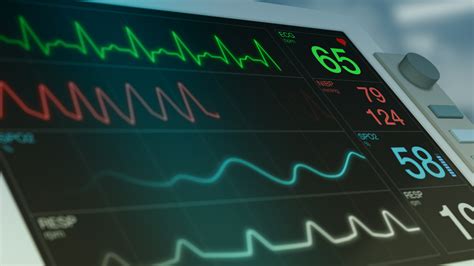The importance of monitoring heart health cannot be overstated. With the rise of cardiovascular diseases, it has become crucial to have efficient and effective methods of tracking heart health. One such method is the use of EKG (Electrocardiogram) monitor technology. EKG monitors have revolutionized the way we monitor heart health, and in this article, we will explore the 7 ways EKG monitor tech improves heart health monitoring.

What is an EKG Monitor?
An EKG monitor is a medical device that measures the electrical activity of the heart. It uses electrodes placed on the skin to record the heart's electrical signals, which are then displayed on a screen as a waveform. This waveform, also known as an electrocardiogram, provides valuable information about the heart's rhythm, rate, and function.
1. Accurate Diagnosis
EKG monitor tech provides accurate and reliable diagnoses of heart conditions. By analyzing the electrocardiogram, healthcare professionals can identify abnormal heart rhythms, detect signs of heart disease, and diagnose conditions such as atrial fibrillation, ventricular tachycardia, and myocardial infarction.

2. Real-Time Monitoring
EKG monitor tech allows for real-time monitoring of heart activity. This enables healthcare professionals to respond quickly to changes in the patient's condition, providing timely interventions and improving patient outcomes. Real-time monitoring is particularly important in critical care settings, where every minute counts.

3. Holter Monitoring
EKG monitor tech also enables Holter monitoring, which involves wearing a portable EKG device for an extended period, typically 24 hours. This allows healthcare professionals to monitor the patient's heart activity over a longer period, providing valuable insights into the patient's heart health.

4. Wireless Connectivity
Many modern EKG monitors come equipped with wireless connectivity, enabling healthcare professionals to transmit patient data wirelessly to electronic health records (EHRs) or mobile devices. This streamlines the monitoring process, reducing the risk of human error and improving patient care.

5. Portable and Compact
EKG monitor tech has become increasingly portable and compact, making it easier to use in a variety of settings, from hospitals to clinics to home care. This portability enables healthcare professionals to monitor patients in different environments, improving patient convenience and outcomes.

6. Automated Analysis
Some EKG monitors come equipped with automated analysis software, which can quickly and accurately interpret electrocardiograms. This reduces the risk of human error and enables healthcare professionals to focus on patient care.

7. Cost-Effective
EKG monitor tech is a cost-effective solution for monitoring heart health. By reducing the need for hospitalizations and medical interventions, EKG monitors can help reduce healthcare costs.

Conclusion
In conclusion, EKG monitor tech has revolutionized the way we monitor heart health. With its accurate diagnosis, real-time monitoring, Holter monitoring, wireless connectivity, portability, automated analysis, and cost-effectiveness, EKG monitor tech has become an essential tool in the healthcare industry. By leveraging this technology, healthcare professionals can improve patient outcomes, reduce healthcare costs, and enhance the overall quality of care.






What is an EKG monitor?
+An EKG monitor is a medical device that measures the electrical activity of the heart.
How does an EKG monitor work?
+An EKG monitor uses electrodes placed on the skin to record the heart's electrical signals, which are then displayed on a screen as a waveform.
What are the benefits of using an EKG monitor?
+The benefits of using an EKG monitor include accurate diagnosis, real-time monitoring, Holter monitoring, wireless connectivity, portability, automated analysis, and cost-effectiveness.
